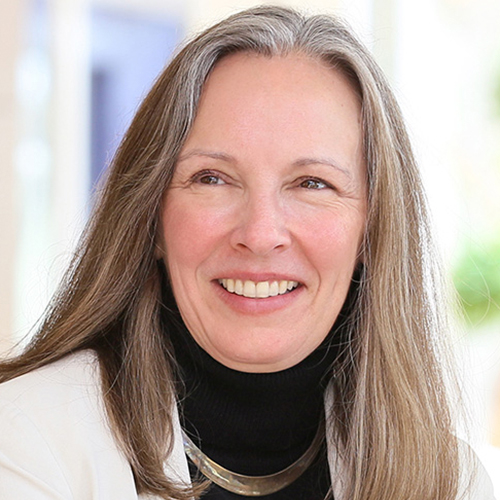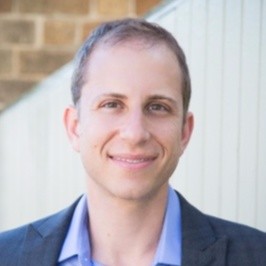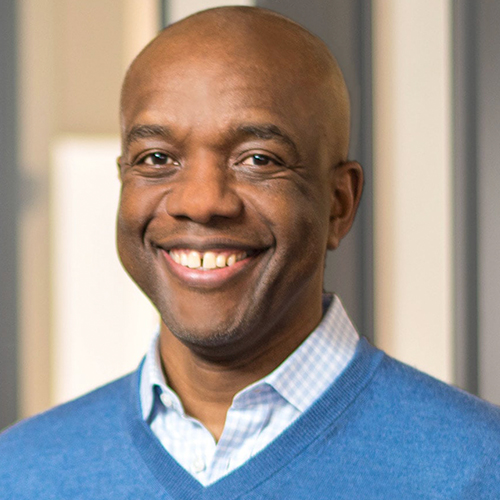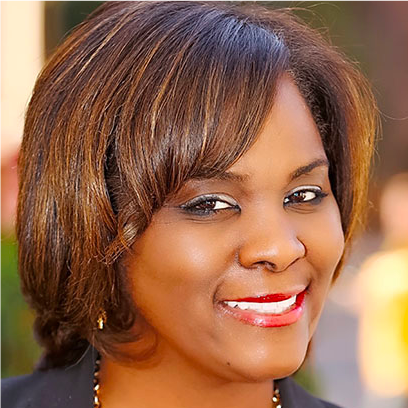By invitation only
Navigating the changing nature of work, including its effects on productivity, employment, and inequality, is one of the greatest challenges we face between now and 2050.
However, too many technologists and business executives are narrowly focused on using AI to automate existing tasks, rather than augment human capabilities. At this event, we will explore the dangers of incentivizing a focus on automation over augmentation—what we call “the Turing Trap”—and discuss how we should measure and benchmark progress in AI. We will also showcase short presentations from a wide range of research projects at the Lab.
The Stanford Digital Economy Lab Spring Workshop brings together our community of faculty, students, fellows, industry leaders, and supporters to share research and discuss groundbreaking ideas related to the future of work and the digital economy. The event will feature short research presentations, extended Q&As, and a keynote speaker—and it will be one of this year’s prime opportunities to engage and debate with the brightest thinkers in the field.
Featured panelists

Co-founder, Anthropic
Jack Clark is a Research Fellow at Georgetown’s Center for Security and Emerging Technology (CSET). In addition to his work with CSET, Jack is co-founder of Anthropic, a member of the Steering Committee of the AI Index, part of the Stanford One Hundred Year Study on AI, and is the author of the weekly ImportAI newsletter. He formerly served as OpenAI’s Policy Director. Jack frequently participates in fact-finding studies and forums relating to AI, including attending the Aspen Strategy Group, and participating in events with the GAO and the Army Cyber Institute. Prior to OpenAI, Jack was the world’s only neural network reporter at Bloomberg and the world’s only distributed systems reporter at the Register.

CEO & Co-founder, Cresta
Zayd Enam is the CEO & Co-founder of Cresta, the leading expertise AI provider for customer conversations. Cresta is backed by Sequoia Capital, Andreessen Horowitz, Greylock Partners, Porsche Ventures, Andreas Bechtolsheim, and the Founder of Google X. Enam’s thesis during his PhD study at Stanford University formed the basis for Cresta. Prior to founding Cresta, Enam was a Haas Scholar at UC Berkeley, where he graduated with high honors in Electrical Engineering and Computer Sciences. Enam was selected to be on the Forbes enterprise technology list and is a winner of the Asia Pacific ICT award. Under his leadership, Cresta was named One Of The Most Promising AI Companies by Forbes and an Enterprise Company to Watch by Gartner.

Schwartz Reisman Chair in Technology and Society, Professor of Law, and Professor of Strategic Management, University of Toronto
Gillian Hadfield is the inaugural Schwartz Reisman Chair in Technology and Society, Professor of Law, and Professor of Strategic Management. She is also Director of the Schwartz Reisman Institute for Technology and Society. Her research is focused on innovative design for legal and dispute resolution systems in advanced and developing market economies; governance for artificial intelligence (AI); the markets for law, lawyers, and dispute resolution; and contract law and theory. She teaches Contracts; Problems in Legal Design; Legal Design Lab, and Responsible AI.
Prior to rejoining the University of Toronto in 2018, Professor Hadfield was the Richard L. and Antoinette Schamoi Kirtland Professor of Law and Professor of Economics at the University of Southern California from 2001 to 2018. She began her teaching career at the University of California Berkeley and was previously on the University of Toronto Faculty of Law from 1995-2000. Her book Rules for a Flat World: Why Humans Invented Law and How to Reinvent It for a Complex Global Economy was published by Oxford University Press in 2017.
Professor Hadfield served as clerk to Chief Judge Patricia Wald on the U.S. Court of Appeals, D.C. Circuit. She was the Daniel R. Fischel and Sylvia M. Neil Distinguished Visiting Professor of Law at the University of Chicago (Fall 2016), the Eli Goldston Visiting Professor (spring 2012) and the Sidley Austin Visiting Professor (Winter 2010) at Harvard Law School, and the Justin W. D’Atri Visiting Professor of Law, Business and Society at Columbia Law School (Fall 2008.) She was a 2006-07 and 2010-11 fellow of the Center for Advanced Study in the Behavioral Sciences and a National Fellow at the Hoover Institution in 1993. She also has held Olin Fellowships at Columbia Law School, Cornell Law School, and USC and is a member of the Comparative Law and Economics Forum. She is past president of the Canadian Law and Economics Association and a former director of the American Law and Economics Association and the Society for Institutional and Organizational Economics and a member of the American Law Institute. She is on the editorial committee for the Annual Review of Law and Social Science and previously served on the editorial boards for Law and Social Inquiry and the University of Toronto Law Journal.
Professor Hadfield is a Senior Policy Advisor for OpenAI in San Francisco, and an advisor to courts and several organizations and technology companies engaged in innovating new ways to make law and policy smarter, more accessible, and more responsive to technology and artificial intelligence, including the Hague Institute for Innovation of Law, LegalZoom, and Responsive Law. She was a member of the World Economic Forum’s Future Council for Agile Governance and co-curated their Transformation Map for Justice and Legal Infrastructure; she previously served on the Forum’s Future Council for Technology, Values and Policy and Global Agenda Council for Justice; and was a member of the American Bar Association’s Commission on the Future of Legal Education, and the Dubai Courts of the Future Forum.

Founder & Executive Director, MLCommons
David Kanter is a Founder and the Executive Director of MLCommons™ where he helps lead the MLPerf™ benchmarks and other initiatives. He has 16+ years of experience in semiconductors, computing, and machine learning. He founded a microprocessor and compiler startup, was an early employee at Aster Data Systems, and has consulted for industry leaders such as Intel, Nvidia, KLA, Applied Materials, Qualcomm, Microsoft and many others. David holds a Bachelor of Science degree with honors in Mathematics with a specialization in Computer Science, and a Bachelor of Arts with honors in Economics from the University of Chicago.

Technology Reporter, The New York Times
Steve Lohr has covered technology, business and economics for The New York Times for more than 20 years. In 2013, he was part of the team awarded the Pulitzer Prize for Explanatory Reporting. He was a foreign correspondent for a decade and served as an editor, and has written for magazines including The New York Times Magazine, The Atlantic and Washington Monthly. He is the author of “Data-ism,” which examines the field of data science and decision making (Harper Business, 2015). He is also the author of a history of software and computer programming, “Go To” (Basic Books, 2001).

Senior Vice President of Technology and Society, Google
As of January 2022, James Manyika is a senior partner emeritus at McKinsey & Company, and chairman and director emeritus of McKinsey Global Institute (MGI). He was previously a member of McKinsey’s board, known as the Shareholders Council. He is currently Senior Vice President of Technology and Society at Google, a newly-created position reporting directly to the CEO of Alphabet.
Based in Silicon Valley for more than 20 years, James has advised the chief executives and founders of many of the world’s leading tech companies on strategy and growth, product, and business innovation. He has also advised other chief executives outside the tech sector on issues related to innovation, the digital economy, and other global trends. In addition to his leadership of MGI, James has led research on technology’s impact on business and the economy, the future of work, productivity and competitiveness, and corporations in the 21st century. James published a book on AI and robotics earlier in his career, more recently published No Ordinary Disruption on global economic trends, and continues to publish numerous articles and reports.
James was appointed by President Barack Obama to serve as vice chair of the Global Development Council at the White House and by two US Commerce Secretaries to the Digital Economy Board and to the National Innovation Board as part of the Competes Act. He serves on the board of the Council on Foreign Relations (CFR) and is a member of the Trilateral Commission. He has served on several national and international taskforces, most recently cochairing CFR’s taskforce on innovation and national security, and appointed by the governor to cochair the state of California’s future of work commission.
He is involved in research institutes including serving on the board of the Broad Institute of MIT and Harvard, and advisory boards at Oxford, MIT, LSE, and Stanford, including as a member of the steering committee for the 100-year study of AI, and at Harvard’s Hutchins Center for African and African American Research. He has been appointed a visiting professor at Oxford’s Blavatnik School of Government, and a member of the National Academies of Sciences, Engineering, and Medicine’s committee on responsible computing.
A Rhodes Scholar, James received a DPhil, MS, and MA from Oxford in AI and robotics, mathematics, and computer science, and a BS first class in electrical engineering from the University of Zimbabwe. He has been elected a fellow of the American Academy of Arts and Sciences, a distinguished fellow of Stanford’s AI Institute, a visiting fellow of All Souls, Oxford, a lifetime fellow of the Royal Society of Arts, and a research fellow of DeepMind.
James is on the boards of the Hewlett, MacArthur, and Markle philanthropic foundations and a trustee of the Aspen Institute. He was a nonresident senior fellow of the Brookings Institution in Economic Studies, a visiting scientist at NASA Jet Propulsion Labs, and a faculty exchange fellow at MIT. At Oxford, he was a member of the Programming Research Group and the Robotics Research Lab, and was awarded a research fellowship and elected a fellow of Balliol College.

President, American Academy of Arts and Sciences
David W. Oxtoby has served as President of the American Academy of Arts and Sciences since 2019. During his tenure as President, he has focused on broadening the diversity of the Academy’s membership and has helped move forward project and policy work in areas ranging from strengthening American democracy to climate change, nuclear arms control, undergraduate education, and the arts. From 2017 to 2018 he was a Visiting Scholar at the Harvard Graduate School of Education and co-founded the Presidents’ Alliance on Higher Education and Immigration.
He is President Emeritus of Pomona College, where he served as President from 2003 to 2017 and helped to advance environmental sustainability, increase college access, cultivate creativity, and pursue academic excellence in the context of an interdisciplinary liberal arts environment. Previously he served as Dean of the Division of Physical Sciences and the William Rainey Harper Distinguished Service Professor of Chemistry at the University of Chicago.
Dr. Oxtoby has been the recipient of several fellowships, including from the Guggenheim Foundation and the National Science Foundation. He is a Fellow of the American Physical Society and the American Association for the Advancement of Science, and a member of the American Chemical Society, the American Philosophical Society, and the Council on Foreign Relations. He was an Overseer of Harvard University from 2008 to 2014 (Chair from 2013 to 2014) and currently serves as a member of the Board of Trustees of Smith College.
A member of Phi Beta Kappa, Dr. Oxtoby received honorary degrees from Occidental College (2005), Lingnan University in Hong Kong (2009), and Miami Dade College (2019). He was elected to the American Academy of Arts and Sciences in 2012.

Co-founder, Vicarious
Prior to co-founding Vicarious, Scott was Entrepreneur-in-Residence at Founders Fund, a $6B venture capital fund focused on hard technology startups. He was formerly CEO of Frogmetrics (Y Combinator 2008), and served as an advisor to Base10 Partners, Felicis Ventures, and 8VC. He earned his BAS in Computer Science and Entrepreneurship from the University of Pennsylvania.

Chief Economist, ADP
Nela Richardson joined ADP as Chief Economist in November of 2020. Nela is the co-head of the ADP Research Institute and leads economic research for ADP. Previously she was Principal and Investment Strategist at Edward Jones, a financial services firm. In that role, Nela analyzed and interpreted economic trends and financial market conditions and recommended investment strategies. Nela is also the former chief economist at Redfin Corp., a national real estate brokerage and technology company, where she led a team of data scientists, economists and writers to track trends in the housing market. Nela also served as a senior economist for Bloomberg, L.P., covering housing and financial markets, and has held research positions at the Commodity Futures Trading Commission (CFTC), Harvard University’s Joint Center for Housing Studies and Freddie Mac. She also worked as an adjunct finance professor at the Carey School of Business at John Hopkins University.
Nela earned a doctorate in economics from the University of Maryland-College Park with concentrations in financial economics, international finance and economic development. She obtained a master’s degree in economics from the University of Pennsylvania and a bachelor’s degree from Indiana University in Bloomington, where she was a triple major in mathematics, economics and philosophy.
Nela regularly provides insight on the economy, real estate trends and capital markets to policymakers, consumers and media. She is a regular contributor to Marketplace from American Public Media and has frequently appeared on CNBC, Bloomberg, Fox Business CNN, Yahoo Finance, the Wall Street Journal, FORTUNE magazine, The New York Times and other national and local media.
Nela serves on the foundation boards for the U.S. Chamber of Commerce and the National Association of Business Economists. She also is a member of the Bureau of Economic Analysis (BEA) Advisory Committee and the Conference of Business Economists.

Professor of Computer Science, UC Berkeley
Stuart Russell is a Professor of Computer Science at the University of California at Berkeley, holder of the Smith-Zadeh Chair in Engineering, and Director of the Center for Human-Compatible AI. He is a recipient of the IJCAI Computers and Thought Award and held the Chaire Blaise Pascal in Paris. In 2021 he received the OBE from Her Majesty Queen Elizabeth and gave the Reith Lectures. He is an Honorary Fellow of Wadham College, Oxford, an Andrew Carnegie Fellow, and a Fellow of the American Association for Artificial Intelligence, the Association for Computing Machinery, and the American Association for the Advancement of Science. His book “Artificial Intelligence: A Modern Approach” (with Peter Norvig) is the standard text in AI, used in 1500 universities in 135 countries. His research covers a wide range of topics in artificial intelligence, with a current emphasis on the long-term future of artificial intelligence and its relation to humanity. He has developed a new global seismic monitoring system for the nuclear-test-ban treaty and is currently working to ban lethal autonomous weapons.

Co-founder, Schmidt Futures
Eric Schmidt is an accomplished technologist, entrepreneur and philanthropist. As Google’s Chief Executive Officer, he pioneered Google’s transformation from a Silicon Valley startup to a global leader in technology. He served as Google’s Chief Executive Officer and Chairman from 2001 to 2011, Executive Chairman from 2011 to 2018, and most recently as Technical Advisor. Under his leadership, Google dramatically scaled its infrastructure and diversified its product offerings while maintaining a strong culture of innovation.
Eric currently serves as Chairman of the National Security Commission on Artificial Intelligence, Chairman of The Broad Institute Board of Directors and as a member of the Mayo Clinic Board of Trustees, among others. He is a Gulfstream pilot, and his philanthropic efforts through The Schmidt Family Foundation and the Schmidt Ocean Institute focus on climate change, including the support of ocean and marine life studies at sea, as well as education and cutting-edge research and technology in natural sciences and engineering.
Additionally, Eric is the co-founder of Schmidt Futures, which bets early on exceptional people making the world better, applying science and technology thoughtfully and bringing people together across fields. In 2019, Eric and his wife Wendy announced a new $1 billion philanthropic commitment to identify and support talent across disciplines and around the globe. As part of this effort, Schmidt Futures, in partnership with the Rhodes Trust, launched its flagship initiative Rise, which aims to increase opportunity for extraordinary young people worldwide and empower them to serve their communities
In 2020, Eric and Schmidt Futures were selected by New York Governor Andrew Cuomo to lead the state’s 16-member, blue-ribbon commission to reimagine a stronger and more resilient New York in the midst of the COVID-19 pandemic, which resulted in the first-ever mandate for universal, affordable connectivity in the United States.
A New York Times bestselling author, Eric is the co-author of The New Digital Age, How Google Works, and Trillion Dollar Coach. He is also the host of “Reimagine with Eric Schmidt,” a podcast series of conversations with leaders to explore how society can build a brighter future after the COVID-19 pandemic.

CTO, Microsoft
Kevin Scott is executive vice president of Technology & Research, and the chief technology officer of Microsoft. He is an innovative leader driving the technical vision to achieve Microsoft’s mission, and is passionate about creating technologies that benefit everyone. He focuses on helping make the company an exceptional place for engineers, developers and researchers to work and learn. Scott’s 20-year career in technology spans both academia and industry as researcher, engineer and leader.
Prior to joining Microsoft, he was senior vice president of engineering and operations at LinkedIn, where he helped build the technology and engineering team and led the company through an IPO and six years of rapid growth.
Earlier in his career, he oversaw mobile ads engineering at Google, including the integration of Google’s $750 million acquisition of AdMob. At AdMob, Scott was responsible for engineering and operations for the world’s leading platform for mobile monetization. Before joining AdMob, Scott held numerous leadership positions at Google in search and ads engineering and helped with the company’s early efforts establishing remote engineering centers.
Scott is the host of the podcast Behind the Tech, which features interviews with technology heroes who have helped create the tech industry of today. He also authored the book “Reprogramming the American Dream,” which explores how artificial intelligence can be realistically used to serve the interests of everyone, not just the privileged few.
As co-inventor on several patents around search and information extraction, he has also authored several publications on dynamic binary rewriting that collectively have been cited hundreds of times in other scholarly research.
He has received a Google Founder’s Award, an Intel Ph.D. Fellowship and an ACM Recognition of Service Award.
He is member of the board of directors of Stellantis and Relativity, an adviser to several Silicon Valley startups, an active angel investor, the founder of the non-profit organization Behind the Tech, an emeritus of the Anita Borg Institute’s board of trustees and a trustee of The Scott Foundation. He also serves on the Leadership Council for Harvard’s Technology for Public Purpose (TAPP) program.
Scott holds an M.S. in computer science from Wake Forest University, a B.S. in computer science from Lynchburg College, and has completed most of his Ph.D. in computer science at the University of Virginia.

Director, The Center for Technology Innovation, The Brookings Institution
Dr. Nicol Turner Lee is a senior fellow in Governance Studies, the director of the Center for Technology Innovation, and serves as Co-Editor-In-Chief of TechTank. Dr. Turner Lee researches public policy designed to enable equitable access to technology across the U.S. and to harness its power to create change in communities across the world. Her work also explores global and domestic broadband deployment and internet governance issues. She is an expert on the intersection of race, wealth, and technology within the context of civic engagement, criminal justice, and economic development.
Dr. Turner Lee comes to Brookings from the Multicultural Media, Telecom and Internet Council (MMTC), a national non-for-profit organization dedicated to promoting and preserving equal opportunity and civil rights in the mass media, telecommunications, and broadband industries, where she served as vice president and chief research and policy officer. In this role, she led the design and implementation of their research, policy and advocacy agendas.
Prior to joining MMTC, Dr. Turner Lee was vice president and the first director of the Media and Technology Institute at the Joint Center for Political and Economic Studies, the nation’s leading think tank on issues related to African Americans and other people of color. In this role, she led the technology research agenda that was focused on advancing digital equity and inclusion for historically disadvantaged populations. Her most notable work was her development of the first national minority broadband adoption study in 2009 that was later cited in the congressionally mandated Federal Communications Commission’s National Broadband Plan.
Dr. Turner Lee’s most recent publications address biases in machine learning algorithms, the digital divide, 5G mobile infrastructure and telehealth. She has written extensively on the digital divide in both urban and rural areas, and the availability of local health resources, including those enabled through telemedicine. She has a forthcoming book on the topic, Digitally Invisible: How the Internet is Creating the New Underclass (Brookings Press, 2021).
Dr. Turner Lee has been cited in the New York Times, Washington Post, San Francisco Chronicle, Communications Daily, Multichannel News, and Washington Informer. She can also be seen or heard on NPR, NBC News, ABC and other print and online publications. She is also a widely sought expert and speaker on issues related to communications policies in media and at conferences, and she has testified on multiple occasions before Congress. Dr. Turner Lee was a two-time Digital Research Program Scholar as part of Time Warner Cable’s Cable Research Program in Communications and recipient of countless recognitions, including the presentation of the Lifetime Achievement Award from the Rainbow PUSH Coalition (2015 and 2019) and one of the Most Inspiring Women in Media from the Alliance of Women in Media (2014).
Dr. Turner Lee graduated from Colgate University magna cum laude and has a M.A. and Ph.D. in Sociology from Northwestern University. She also holds a Certificate in Nonprofit Management from the University of Illinois-Chicago. Dr. Turner-Lee is a Visiting Scholar at the Center for Gender Equity in Science and Technology at Arizona State University. She also serves on the Federal Communications Commission broadband advisory working group and digital diversity working group. In her free time, Dr. Turner Lee is Chair of the Telecommunications Policy Research Conference (TPRC), which is committed to joining policymakers and academics around significant tech policy issues.

Distinguished Professor of the Graduate School at the Haas School of Business, UC Berkeley
Laura D’Andrea Tyson is an influential scholar of economics and public policy and an expert on trade and competitiveness who has also served as a presidential adviser. She is a Distinguished Professor of the Graduate School at the Haas School of Business, University of California, Berkeley. She also chairs the Board of Trustees at UC Berkeley’s Blum Center for Developing Economies, which aims to develop solutions to global poverty. She is the former Faculty Director of the Berkeley Haas Institute for Business and Social Impact, which she launched in 2013. She served as Interim Dean of the Haas School from July to December 2018, and served previously as dean from 1998 to 2001.
Tyson was a member of President Clinton’s cabinet between 1993 and 1996. She served as Chair of the President’s Council of Economic Advisers from 1993 to 1995 and as Director of the White House National Economic Council from 1995 to 1996. She was the first woman to serve in those positions.
Much of Tyson’s recent research focuses on the effects of automation on the future of work. She is the Co-organizer of WITS (Work and Intelligent Tools and System), an interdisciplinary faculty group created to explore the impacts of digital technologies and artificial intelligence on working, earning, and learning.
She has also devoted considerable policy attention to the links between women’s rights and national economic performance. At the World Economic Forum (WEF), she is a member of the Global Future Council on the New Agenda for Equity and Social Justice. She is the co-author of the WEF Annual Global Gender Gap Report, which ranks nations on economic, political, education, and health gender gaps. She is also the co-author of Leave No One Behind, a report for the United Nations’ High-Level Panel on Women’s Economic Empowerment (2016).
In addition to serving as dean of Berkeley Haas, Tyson served as dean of London Business School from 2002 until 2006. She serves on three corporate boards and several advisory boards for several nonprofit and for-profit organizations.
Tyson is the author of numerous reports, case studies, academic papers and books on competitiveness, industrial policy, international trade, and sustainable business practices. She is also regular contributor to Project Syndicate, and is a frequent media commentator on issues of U.S. and global trade and economics, high-tech competition, automation and artificial intelligence, and women’s economic empowerment.